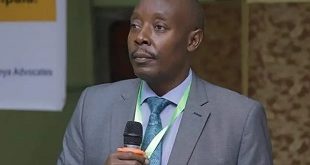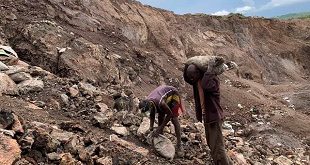Digital menace
What makes today’s threats to free expression especially insidious is that they don’t come just from the usual suspects – thuggish government censors.
They are amplified and weaponised by social media networks that claim the privilege of free speech protection while they allow themselves to be hijacked by slanderers and propagandists.
No one has done more to expose the complicity of these platforms in the attack on democracy than Ressa, a tech enthusiast who built her publication’s website to interface with Facebook and now accuses the company of endangering her own freedom with its laissez-faire approach to the slander being propagated on its site.
Named a Time magazine person of the year in 2019, she has become a global symbol of press freedom and an avatar of courage in the face of rising authoritarianism. As her profile has grown, so, too, has her mission.
Ressa is one of the founding members of the Real Facebook Oversight Board, a group of academics, journalists, and activists formed as a tongue-in-cheek counterpoint to the company’s actual Oversight Board, launched in May. That board was designed to function as a “Supreme Court” of sorts, with the power to decide if the company’s content-moderation decisions “were made in accordance with Facebook’s stated values and policies.” Ressa contends that those values and policies are themselves the problem, and says that Facebook’s persistent failure to effectively combat disinformation and hate speech poses an existential threat to democracy around the world.
“Freedom of expression is full of paradoxes,” the Nobel Committee’s Reiss-Andersen observed, in an interview after awarding the Peace Prize. She made it clear that the award to Ressa and Muratov was intended to tackle those paradoxes too.
Asked why the Peace Prize went to two individual journalists – rather than to one of the press freedom organisations, such as the Committee to Protect Journalists, that have represented Ressa, Muratov and so many of their endangered colleagues – Reiss-Anderson said the Nobel Committee deliberately chose working reporters.
Ressa and Muratov represent “a golden standard,” she said, of “journalism of high quality.” In other words, they are fact-finders and truth-seekers, not purveyors of clickbait.
That golden standard is increasingly endangered, in large part because of the digital revolution that shattered the business model for public service journalism.
“Free, independent and fact-based journalism serves to protect against abuse of power,” Reiss-Andersen said in the prize announcement. But it is increasingly being undermined and supplanted by what’s called “content,” served up algorithmically from sources that are not transparent in ways that are designed to addict and that drive partisanship, tribalism and division.
This poses a challenge for public policymakers and the democracies they represent. How to regulate digital media and still protect free speech? How to support the labour-intensive work of journalism and still protect its independence?
Answering those questions won’t be easy. But democracy may be at a tipping point. With its recognition of two investigative journalists and the crucial – and dangerous – work they do to support democracy, the Nobel Committee has invited us to begin the debate.
****
This story has been edited for length
Source: The Conversation
 The Independent Uganda: You get the Truth we Pay the Price
The Independent Uganda: You get the Truth we Pay the Price


